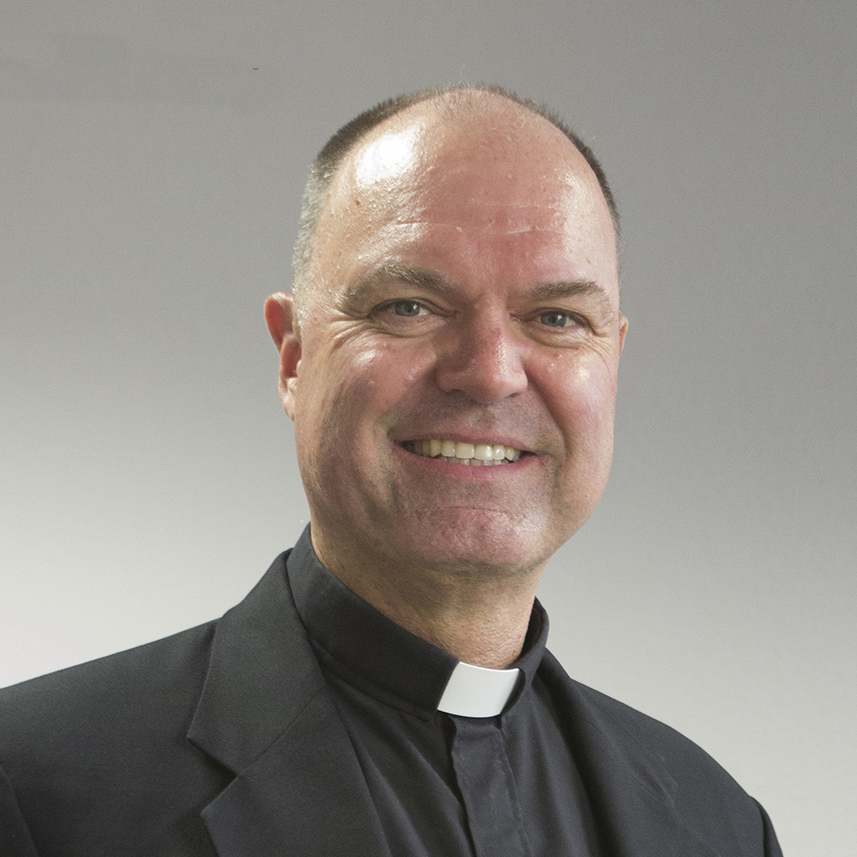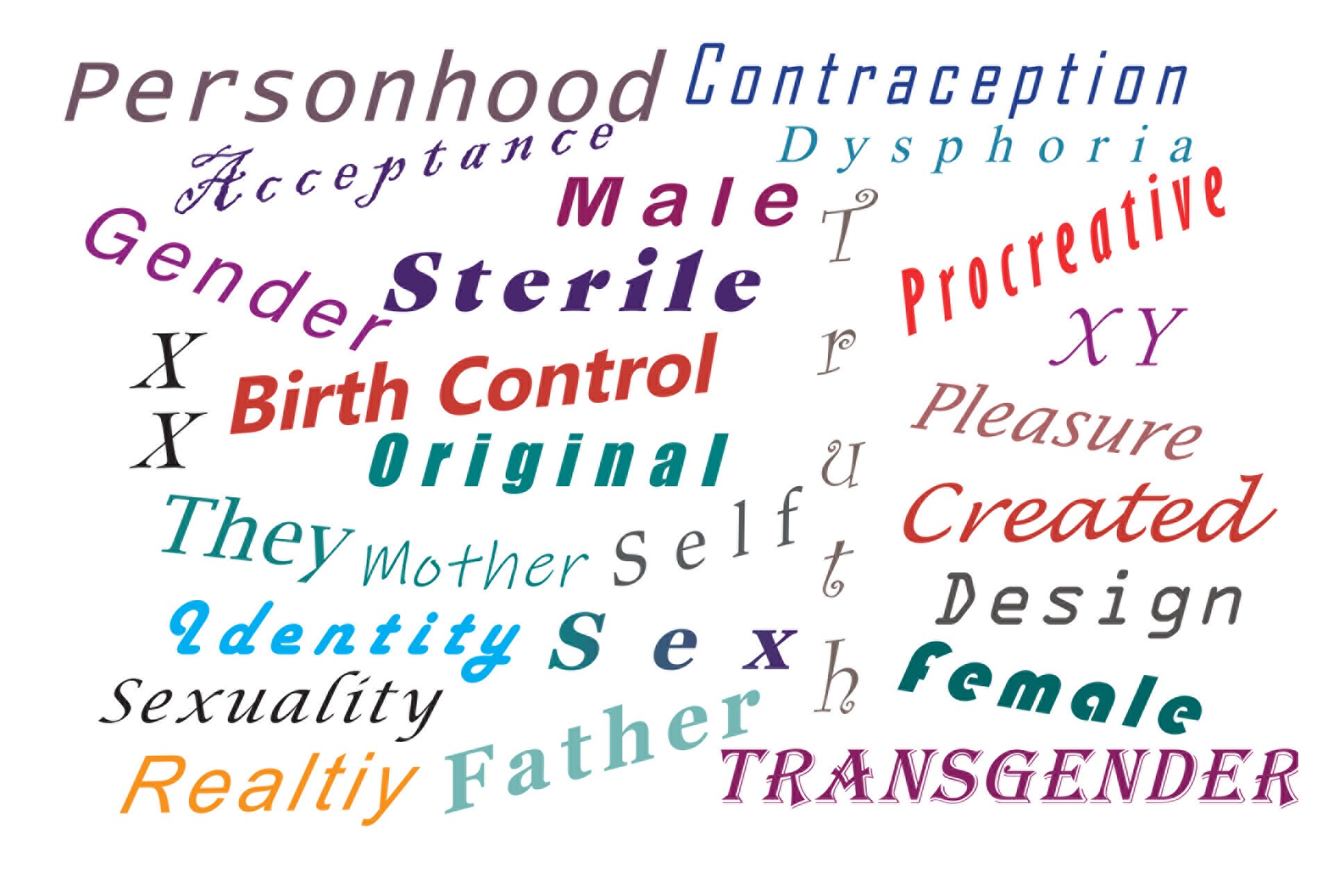- Featured Favorites, President's Perspective
The Contraception-Transgenderism Connection
by Fr. Blaise Berg, STD
Winter 2024
Transgenderism did not simply show up out of nowhere. Indeed, it is the result of a hundred years of mutations stemming from the original birth control movement in the early 1900’s. Before we address the question “How did we get here?” it is good to answer another first: “Where did we come from?” In her book, The Genesis of Gender (Ignatius Press, 2022), Dr. Abigail Favale chronicles with accuracy and insight the various twists and turns on the highway from artificial birth control to transgenderism over the last century.
Ironically, early feminists rejected contraception as something that would benefit men and harm women, since it would allow men to have sexual intercourse without having to worry about fathering and caring for a child. The early feminists advocated “voluntary motherhood” through periodic abstinence (cf. Genesis of Gender [GG], 87-88).
Contradicting the early feminists on this point, Margaret Sanger insisted that women were stymied by their own bodies. Thus, for example, Sanger argued that it was not ideal for a woman in the workplace to become pregnant, because she would have to leave the workplace in order to raise the child. “Female fecundity thus [became] the scapegoat for woman’s oppression…” writes Dr. Favale (GG, 89). In succession, Sanger founded the first birth control clinic in the U.S. in 1916, popularized the term “birth control,” and then successfully convinced physicians to adopt her views (GG, 89-91). The rest is history, one we sadly know only too well. Two turning-points in this history will stand for many others: the Supreme Court’s legalization of contraception for married couples in 1965 (Griswold) and of abortion in 1973 (Roe).
Needless to say, Sanger’s position and its historical fruits are clearly opposed to God’s original design for creation and for man and woman. When God created marriage and procreation (cf. Book of Genesis 1 and 2), he clearly intended that the difference between male and female be intrinsic or essential to the identity of each. Thus, upon first seeing Eve after awakening from a “holy sleep,” Adam exclaimed of Eve that she was “bone of my bones and flesh of my flesh” (Gen 2:23). Adam perceived that, while Eve shared the same human nature as he, she was also different; she was “woman.” The understanding of the difference of the sexes can also be traced to the beginning of Greek philosophy. Citing Aristotle’s Generation of Animals, Dr. Favale notes that: “…a male is the animal that generates in another, and a female is the animal that generates within herself.” Nonetheless, Favale clarifies, this does not mean that “a man or woman who cannot procreate is not truly a man or a woman” (GG, 143).
Taking all of the above into consideration, we are in a position to address our second question: “How did we get here?”
How did we arrive at a transgender world? Favale writes:
How did we arrive at this cultural moment, where bodily sex is no longer considered to be integral to personhood, but is ornamental, easily altered, a fiction “assigned” at birth? I’d like to argue that this new understanding of sex can be traced, in large part, to two related innovations in the mid-twentieth century: first the widespread embrace of contraception, which then enabled a newly expansive concept of “gender” to emerge. (GG, 143)
Dr. Favale goes on to explain how contraception has “reshaped our cultural understanding of the meaning of the sexed body” (GG, 143). Procreation has come to be viewed as incidental to what it means to be a man or a woman. Favale observes: “We live and move and have our trysts in a contraceptive society, where the visible markers of our bodies no longer gesture toward new life, but signal the prospect of sterile pleasure” (GG, 143). As Favale explains in a recent interview (www.youtube.com/watch?v=TFmghULCwhg), contraception has helped normalize the idea that it is acceptable to disrupt our sexual physiology even when it is not medically indicated to do so. What it means to be a man or a woman thus loses its connection with the sexed body.
Individuals’ perception of themselves as males or females is increasingly detached from the reality of their bodily sex. As a result, people can begin to think it possible and desirable to “change” one’s sex, either in one’s own mind or through pills and surgeries. Hence the phenomenon of the born female who claims that in her “soul” she “feels male” and demands that others refer to her with non-female pronouns in order to signal their acceptance of her “true” identity.
In conclusion, we address our third question: “Where do we go from here?” First, we pray. We pray for those struggling with gender dysphoria (even if the origin of the dysphoria is a social contagion or a mental pathology, not a physiological condition). We pray that they may be able to see that God made them in a particular way, and that medications, surgeries and communicational constructs will never alter that. Second, we make sure that we are informed ourselves about the truth of how God created us, and that we seek to live according to His truth, a truth that cannot be altered by our human foibles. We educate and support parents to teach their children the truth about God’s design for sexuality using teachings such as the John Paul II’s “Theology of the Body”. And, we need to minister to transgendered persons. Third, we commit to the long haul. The trans-identified people in our lives will likely be unwilling to hear any criticism or question. This does not mean that we should remain silent, but it does mean that we will need patience, charity and a long-term strategy. This suggests a fourth thing we can do: seek counsel and guidance from people who have experience dealing with trans-identified children, relatives, and friends. Below are some online resources as a starting point.
With God’s help, may we continue to journey together down the road to deeper acceptance and understanding of, and gratitude for, God’s eternal design for man and woman.
Online resources:
cbc-network.org/film-detransition-diaries/
sfarchdiocese.org/the-body-soul-unity-of-the-human-person/
About The Author



